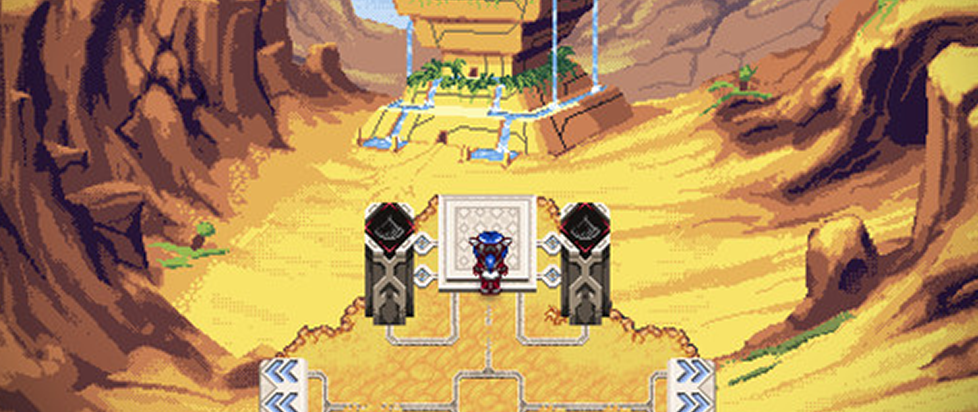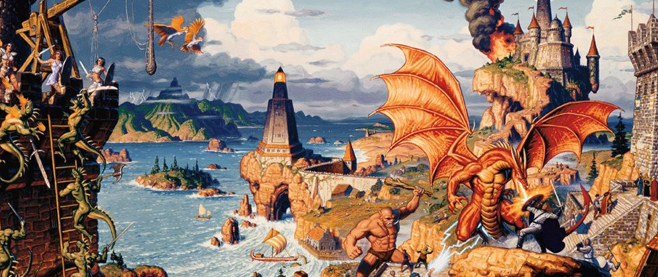
Artificial Interpersonal Relationships
Forgive the bravery and timeliness of this take, but massive multiplayer online role-playing games only ever seemed like busywork, and therefore uninteresting. World of Warcraft landed shortly after the Gameboy Advance SP, and my allegiances were set with the joys of a solitary grind, but for many folks WoW was a revelation. Soon enough, it was impossible to ignore, particularly when my then-roommate was consumed by it and shortly afterwards Final Fantasy XI. Fresh from four years in the Navy, he found himself back in the gale-beaten valley of Laramie, Wyoming, grappling with isolation and the demands of an undergrad curriculum that he was not prepared nor really suited for, and yearning for relief.
Back then I was perplexed, but a decade-plus of perspective allows me to recognize the community he found in these games. Beyond even that, he also craved the comfort of a routine that offered a structure not unlike what he found in the military as well as a freedom to determine his own path down specialized skill trees. I respect these desires, and how MMO’s can feed them so completely, but if these systems were obfuscated back then they are downright inscrutable to me now. The odds that I might find this same appreciation for the genre dwindle by the day.
This was all before I began playing CrossCode in earnest, however. This 16-bit-ish indie tribute to MMOs by Radical Fish Games straddles the 90’s and the 00’s quite sturdily by spinning a relatively tidy narrative from the MMO experience and dressing it in the pixels of Chrono Trigger and Phantasy Star with the top-down action-RPG game loops of Secret of Mana. After a strong demo spun some serious buzz a few years ago, CrossCode settled in for the Early Access long haul—updating regularly, doling out the narrative bit by bit, and honing in on that core loop of quests, exploration, and cracking woodland cyborg skulls. The look and the feel of the game had me drooling instantly, but more interested in the complete experience, I merely pre-ordered and put it out of my mind, hoping this wouldn’t be another indie hype bust.
CrossCode was let loose in 1.0 form in the back half of 2018. It did not appear on many year-end lists, probably as a consequence of having lingered in the backs of so many minds for a little too long, which is an absolute crime. Still, that time spent percolating served the game well—it’s a robust, puzzle-filled romp that gives the player plenty to do without ever feeling particularly busy. A wide variety of attacks, from projectiles through melee, shields and dashes, with gradually earned elemental adjustments, scaffolds a world brimming with treasures easily seen but not reached, distinctive cities that teem with life via other “players” constantly running about, and a charming anime-inspired but not oversaturated aesthetic that surges through the game.
Of course, CrossCode isn’t the first meta-MMO narrative, what with .hack and Sword Art Online telling tales about the dual lives of MMORPG players. Where these games really hammer down on the persona vs. the “real” world, often to wax on about the masks we wear at all times, CrossCode exists entirely in the fictional in-game CrossWorlds MMO. We only know the other party members through their avatars even if they often refer to their other lives and regularly crack the “immersion.” The main character Lea appears to be a near blank slate who can’t even speak, a fantastic twist on the typically mute protagonist, meant to represent the player, who never speaks but is always understood. But these gaps are filled in at a player-determined pace, broken up by marathon dungeons and obsessive excavation of the overworld. As the game moves on it asks compelling questions about AI and identity, while catering to the in-crowd with a smattering of winks for fans of the genre (raids, guilds, scripted “role-playing,” etc.).
In mirroring MMO’s so strongly, CrossCode can’t help but take on a few of their less flattering qualities, but none of these are really showstoppers. There are a few repetitive quest types, though the game will often jab itself in anticipation of the backlash over a glut of content. As such it can sometimes feel laden with chores, though the game does a great job of scaling itself if you’re the kind of player who can’t be bothered with clearing every quest list. And while the mechanics of many of the quests often feel familiar, the friction inherent in playing the game stimulates a range of ASMR-like senses, most notably in the feel of mowing down CrossWorlds flora. Each plant gives up a very satisfying pop that could have been reproduced from from actual bubble wrap, and I feel compelled to hit every single one as I traipse through. Most enemies are skippable as well, if you’re just trying to figure out that last chest in the Infested Marshes and can’t be bothered with every Shokat and Behesloth you come across.
I have yet to finish CrossCode, as it’s quite beefy. But I am very interested to see how the end narrative ties up. It could go either way, but it slowly posits a central question of if a human-created game world can be enough to actually feel alive in, and if such an existence can even be considered life. I have a feeling where it might land, but CrossCode has been surprising me while also giving me a game that feels like home in almost every aspect, and characters that radiate personality and quirk without feeling overdrawn or stereotyped.
I’ve seen MMO’s come close to ruining lives, but I’m open to this game’s thesis that these spaces are also ripe for healthy social experiences, the kind that feed back and forth across landscapes and masks, despite geographic location or the happenstances of one’s path to sentience. It’s a potentially over-heady ride, but CrossCode tingles with succulent friction and the loops carry me along on a raft that feels like home, even if I’m unsure where I’m going.



